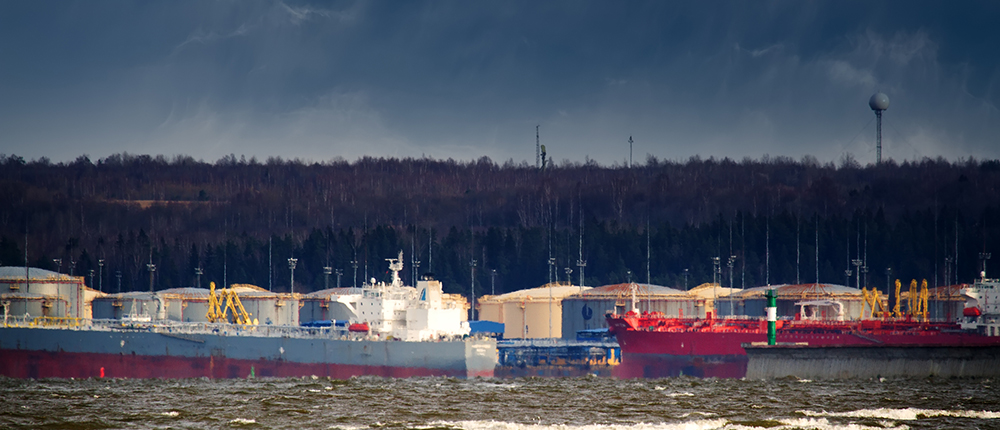
Belarus has decided effectively to bypass Latvia and Lithuania as its main reloading ports for petrochemical exports, including base oils and lubricants, and send them to foreign markets from Russian ports instead.
The transport ministries of Belarus and Russia signed an agreement last week under which westbound petrochemical exports from the former country are to be reloaded primarily through the settlement of Ust-Luga, Russia’s westernmost Baltic port, 173 kilometers west of St. Petersburg.
“It will give us an essential push to open new possibilities in seeking alternatives for supply of [Belarus] petrochemicals, primarily meant for export,” Russian Minister of Transport Alexei Avramenko was quoted as saying by 1TV, the country’s national television station.
Belarus’ two main refineries, a Mozyr fuels refinery near Mazyr, and a Naftan facility in Novopoltsk – which produces API Group I base oils and finished lubricants – together export around 11 million tons of fuels, base oils, lubricants and other petrochemical products annually. The main westbound export hubs for these refineries have long been the ports of Riga and Liepaja in Latvia and the port of Klaipeda in Lithuania. Products would travel by rail to these ports and then by sea to the final destination.
An industry insider noted that base oils are in high demand in Europe now and contended that Belarus marketers can easily redirect their exports through Russia or Ukraine.
“Generally speaking, Ukraine is the primary destination for Belarus base oils and lubricants, followed by Latvia and Lithuania,” Denis Varaksin, base oil trader at Berlin-based DYM Resources, told Lube Report.
Varaksin estimates that if the Baltic countries are bypassed as export routes, Ukraine could become the main destination because it is closer and therefore less costly to reach. He added that Ukraine could consume all base oils coming from Belarus, “bearing in mind the deficit for this material taking place in Ukraine right now.”
Observers say the agreement between Belarus and Russia is a rebuke of of the Baltic countries’ support of the anti-government protest movement against the regime of Belarus President Alexander Lukashenko. The European Union – of which Estonia, Latvia and Lithuania are members – did not recognize August presidential election results in Belarus and imposed sanctions against Lukashenko for his suppression of the largest street protests seen in Belarus since the 1990s, which rattled the country this past fall and winter.
Varaksin expects that base oils and lubricants shipment by railway to Russia can significantly increase the shipping costs for the Naftan refinery. Ust-Luga, a small settlement by the sea near the border with Estonia that Russia now plans to develop as a significant port hub, is about a 200 kilometers longer railway route, compared to Riga or Liepaja. It is also located further north than both Baltic ports.
“After the regular maintenance halt in Naftan in April, and the expected availability of the base oil products from June onwards, the costs for sale of the products through Russia can increase significantly, as a resulted of the higher railway transportation expenditures, and more expensive reloads in Ust-Luga,” Varaksin said.